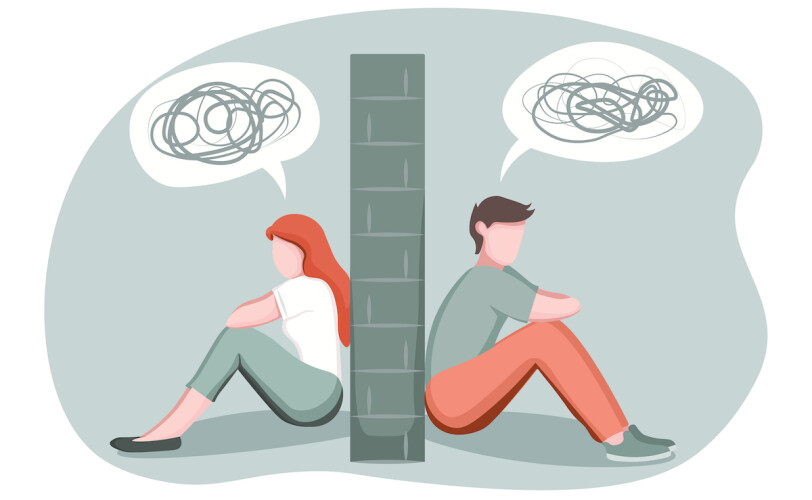'Communication issues' in relationships – what does that mean?
'Communication issues'. What exactly does this mean? In this article, I discuss the five things 'communication issues' are likely to mean if you feel you are having these in your relationship(s).

What might 'communication issues' mean in relationships?
1. Pointing the finger
Here you take no, or very little, responsibility for your part in the dynamic. If you have not learnt how to be accountable, you will likely find this extremely difficult to do (i.e. owning up that you have a part to play in it.) Maybe you are being judgemental, critical, persecutory or assuming? When we act in a certain way, others may react.
2. Rapid escalation of anger/hostility with very little provocation
You may not have learnt how to be 'different' from another person and so have very little tolerance when discussing differences. Or, you want to be in control/dominate your partner and you escalate quickly to suppress, bully, or get them to change their mind (beat into submission!).
3. Sensitivity
If you are sensitive to being challenged, you will likely become defensive very quickly. Maybe you then withdraw, shut down, protest (think child tantrum here) or sulk? All of these are ineffective ways of communicating and keep you, and the other, separate. Is that what you are really wanting? This can lead to anxiety and resentment in the relationship.
4. Re-triggering past trauma
Everyone has a past and, dependent on how you have learnt to be in a relationship, and what wounds you may have (i.e. a certain word, a certain look, unhealed 'molehills' in your relationships – remembering the molehills make the mountain!), you may continue to push the buttons in one another, either consciously or unconsciously, and this then causes a split in your relationships.
5. Never learnt how to repair
When you have a disagreement, you separate to protect yourself (flight, fight, freeze) as you have a traumatic response. You then stay in distress which can bring resentful feelings such as anger, loneliness, bitterness, etc. Learning to repair is so important as, if you do, you can learn to quickly reconnect and get your relationship back on track.
How can therapy help?
A question... why struggle when you don't have to? As humans, we are wired for survival and, in relationships, we are wired for safety and security, which is why these dynamics can play out. Of course, you are not purposely disconnecting from your partner, or yourself (unless you are aware you are punishing and are doing it consciously).
Therapy helps you to learn more about all these issues and encourages living in relationships in a more secure, healthier way, which makes for a healthier you. How do you do this? By being honest, open and willing to change. And being accountable for your contribution.
I first qualified in couple and two-person work in 2020 and, since then, I have gone on to train in the 'Development Model' at the Couples Institute, working with attachment and attunement in relationships. Truth be told, I have worked with relationships all my working life in one shape or another.
Know, with want, dedication and communication from your side (not expecting the other to change), you can heal.

Find a therapist dealing with Relationship problems
All therapists are verified professionals






